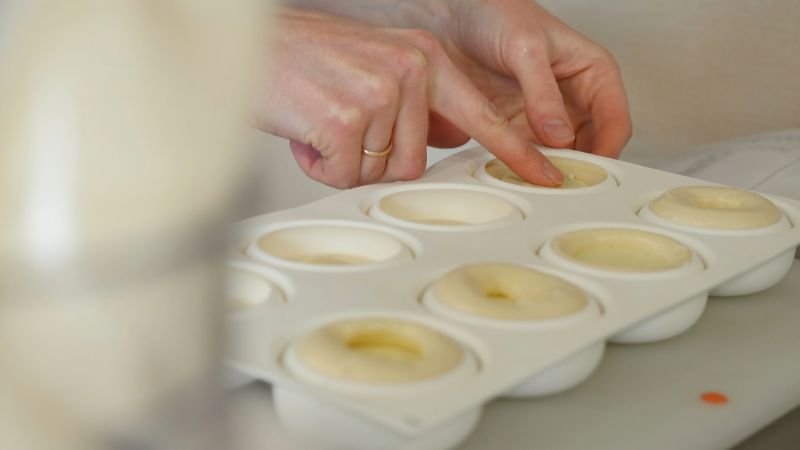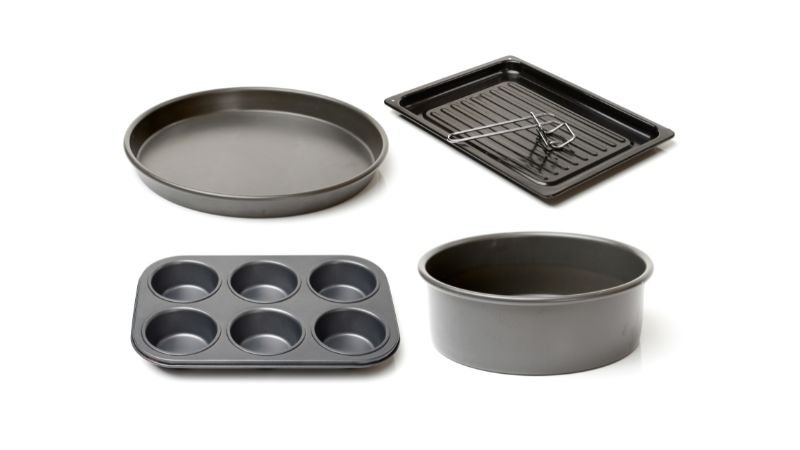Have you ever been torn between choosing silicone molds and metal ones for your baking needs? This common dilemma affects everyone from home bakers to professional chefs. Each material has its unique properties, advantages, and limitations, impacting your baking results in various ways.
When it comes to baking, the choice between silicone molds and metal pans can significantly influence the quality, texture, and appearance of your baked goods. While silicone molds offer flexibility and non-stick properties, metal pans are known for their heat conductivity and durability. Both types have their place in the kitchen, but understanding their differences is key to making the right choice for your baking projects.
Let’s dive deeper into the specifics of each type, helping you make an informed decision for your next baking adventure.

What Are the Main Differences Between Silicone and Metal Bakeware?
When we talk about bakeware, the material is a crucial aspect. Silicone, a rubber-like material, is praised for its non-stick surface and flexibility. On the other hand, metal bakeware, typically made from aluminum or stainless steel, is valued for its strength and even heat distribution. But what does this mean for your baking?
How Does Heat Distribution Affect Baking?
Heat distribution is a key factor in baking. Metal bakeware excels in this area, conducting heat quickly and evenly. This ensures that your cakes and pastries cook uniformly, reducing the chances of undercooked centers or overcooked edges. Silicone molds, while not as efficient in heat conduction, compensate with their flexibility, allowing for easy removal of delicate baked items.

Are Silicone Molds Truly Non-Stick?
One of the most significant advantages of silicone molds is their non-stick nature. This feature reduces the need for greasing or lining the molds, making the baking process more straightforward and cleanup easier. However, for optimal results, a light greasing is still recommended.
Durability: Which Lasts Longer?
When considering the longevity of bakeware, metal typically has the upper hand. Metal pans can withstand high temperatures and repeated use without losing their shape. Silicone, while resistant to cracking and rusting, may lose its flexibility over time, especially when frequently exposed to high temperatures.
Is There a Difference in Ease of Cleaning?
Ease of cleaning is a practical consideration. Silicone molds can be turned inside out, making it easier to clean every nook and cranny. They are also dishwasher safe. Metal pans, though durable, might require more effort to scrub off stuck-on food, especially if they are not coated with a non-stick layer.
Safety Concerns: Are Silicone Molds Safe for Baking?
Safety is always a priority in the kitchen. Silicone molds are generally safe for baking, as they can withstand high temperatures without releasing harmful chemicals. However, it’s crucial to purchase high-quality, food-grade silicone to ensure safety. Metal pans are also safe but be mindful of non-stick coatings that can degrade at high temperatures.

Versatility in Baking: Can Both Be Used for Any Recipe?
Versatility is where silicone shines. Its flexibility allows for creative shapes and sizes, making it ideal for molding chocolates, cupcakes, and more. Metal pans, while more traditional, are best suited for bread, pies, and cakes that require sturdier support.
Cost Comparison: Which is More Economical?
Cost is an essential factor for many bakers. Generally, high-quality metal bakeware can be more expensive upfront but offers durability that may make it more cost-effective in the long run. Silicone molds are often more affordable and offer the advantage of variety in shapes and sizes.
Conclusion
In the battle of silicone molds vs. metal for baking, there’s no clear winner. Each has its benefits and drawbacks, and the best choice depends on your specific baking needs and preferences. Whether you prioritize easy release, even heating, or versatility in shapes, both silicone and metal bakeware have a place in the kitchen.
Happy baking!